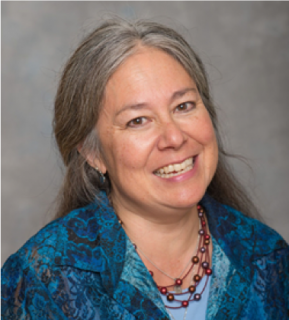Why INSTITUTIONAL CHANGE?
In a previous blog post, my colleague Cir L’Bert Jr. wrote about the way that lack of common framework upon which to continue our conversations about race and oppression and difference in our world and within our own endeavors hinders our faith movement.
One reason we may be at cross purposes is that we tend to think of racism as exclusively personal and interpersonal—any discussion of racism is heard this way, “I am a racist or I am saying you are or that your treatment of me is racist.” Personal and interpersonal racism does exist and we also need to build understanding that racism is also systemic—it shapes institutions including government, education, and places of worship. While greater awareness can prevent some of these personal/interpersonal encounters, many of us also want and need institutional and cultural change to address embedded oppression. Institutional racism refers to how biases are embedded in systems to create inequities cultural racism refers to the extent to which the broader culture promotes a single ideal of what is desired or good which is linked to white domination.
Institutional and cultural racism operate together to build systems of unequal treatment and benefit which denies the inherent worth and dignity of persons, one of the theological pillars of our faith. Addressing racism in its institutional form and acknowledging its cultural forms is so central to the work we should be committing ourselves to as a faith movement. Without institutional change, we cannot address the larger frame. Incidents of personal and interpersonal racism will continue and yet institutional change allows us to put in place systems that educate to prevent harm, increase equitable outcomes, repair relationships harmed by personal/interpersonal racism and reduce harm in the interim.
Why does this matter? Because many of those who would be among the most enthusiastic members of our faith expect our institutions to reflect our faith values and are repelled when we do not. The comment to a visitor based on an ignorant stereotype or racial, cultural or class assumption harms that person and denies the welcoming nature of our faith. Our first principle is not about allowing any opinion to be expressed but about cultivating practices that can affirm a diversity of people and experiences.
In our congregations and communities, we often find generational differences. Those who worked hard in the 1960s and 1970s, who defied the social order of that time and embraced new inclusivity may believe that we are now in a post-racial society. Some believe that Civil Rights laws eliminated oppression and oppression. Many believed that legal change would be enough to create the necessary opportunity and while some opportunities are created, the societal imbalances are seen across a variety of measures including employment, personal net wealth, educational attainment levels and health statistics. And the lived experience of many today, particularly younger people or those with multiple marginalized identities, tells them that changing laws did not change hearts and that cultural attitudes about the superiority of white cultural norms perpetuate discriminatory practices which mark countless aspects of our continued engagement.
We also find differences based on identity. Those who live within the margins of the larger culture are more likely to enter our doors because of our theology and beliefs. They come into our communities expecting to see us struggling to live into our values, not with perfect success rather with perseverance and commitment. They stay because of the beliefs, even if the community can be uncomfortable, difficult and damaging at times. Those who do not live with erasure or as the target of hate may be attracted more by the idea of a community that mirrors their general values and the social connections may be the most important aspect. They may fear discussion of the faith roots of anti-oppression work as moving towards the adoption of a creed. Because their lived experience does not include systemic or cultural inequities, they discount the need for conscious and continuous work to dispel cultural and institutional oppression.
For two years, the Commission has been collecting personal and institutional accounts of the ways this kind of inequity exists within the Unitarian Universalist frame. Through focus groups, surveys, personal testimonials, and analysis of events, we are tracking the forms this takes in order to make recommendations about the institutional remedies which we will compile by General Assembly 2020.
Changing hearts is the work of our faith community. This means we all continue to grow in our personal understanding and move our institutions to a higher plane to ensure inclusion, embrace diversity and a growing sense that what we all bring to the table is valued.
—Rev. Leslie Takahashi
Deepening Spiritually
The Commission on Institutional Change calls us into a practice of deep listening and reflection on the words of others.
Randomly select a line of reading from this blog post and try to engage it on these four different levels:
- What is being said in this line of text?
- Allegorically, what words or symbols jump out at you in this line of text?
- How does this line of text speak to your own life?
- Lastly, what do you feel called to after reflection on this line of text?
For a demonstration on how to engage in this practice listen to the Harry Potter and the Sacred Text podcast on commitment: http://www.harrypottersacredtext.com/listen-2

